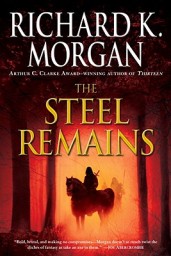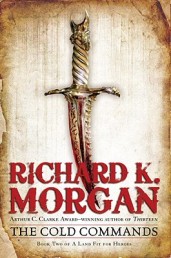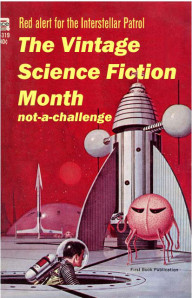I started my vacation with a glass of wine, some Beatles’ songs (a break from Hamilton on never-ending loop), and a reread of Thomas Page McBee’s Man Alive. I was working on the book floor for two days before Christmas, and in that time, I sold this book to two people, one friend and one customer. If I could sell it to everyone who came in through the door, I would.
When I was just coming out, my friend told me to read McBee’s column in the Rumpus called ‘Self-Made Man’. McBee writes a lot about masculinity and what it means to be a man, something that has always been my interest in and out of the context of trans experience. I pay a lot of attention to how men behave and think and how they are made to behave and think.
 Thoughts on masculinity aside, McBee is a powerful writer. His sentences are so vivid, it’s like he is writing directly on your eyeballs, or perhaps directly on your brain. I read Man Alive in one sitting, unable to move, unable to leave the couch. I am glad it’s fairly short, because my bladder would not have been able to last for more than 170 pages.
Thoughts on masculinity aside, McBee is a powerful writer. His sentences are so vivid, it’s like he is writing directly on your eyeballs, or perhaps directly on your brain. I read Man Alive in one sitting, unable to move, unable to leave the couch. I am glad it’s fairly short, because my bladder would not have been able to last for more than 170 pages.
At the time (I read Man Alive early in 2014, before its publication), I was still not exactly sure what I wanted to do. I was not yet on T, and while I wanted to be on T, I also didn’t know if I would like the change. It wasn’t the idea of sticking myself with needles, or being on hormones for the rest of my life. I was just always a fan of status quo and did not like to change anything, even if said change was going to save my life.
I found the same kind of uncertainty in the pages of McBee’s book, and I found answers. There were trans memoirs that helped me realize I was trans. There were trans memoirs that helped me come out. And then there was Man Alive, which described precisely how I felt and finally placed me where I wanted to be in the space-time continuum that my clusterfuck of life had become at that point. McBee and I came from different backgrounds and had different families, and our reasons for postponing our transitions were different, but there was a similarity of thought and feeling somewhere in both our cores.
…and I knew there wouldn’t be a divine intervention, no right time, no sign that testosterone would make me a good man, no test to confirm that I would be happier, or more whole.
After I came out to my closest friends, I remember crying a few times when my heart was full of both pain and hope: the time when I saw myself in a mirror wearing a binder, and it looked so right; the time when I realized I had to leave my family and live as someone I had always been on the inside; and the time when I read Man Alive and knew I had made the right choice, even if it took me more than thirty years.
In the meantime, the twin man in the mirror was growing more solid while my current, softer face became more and more transparent. I knew which body was a ghost.
 Carry On is a fascinating book because it’s sort of a self-aware, meta fan fiction. If you have read Fangirl, you will recognize the name Simon Snow, as he is the character in protagonist Cait’s fan fiction. Carry On does not hide the fact that it is fan fiction and in fact offers some interesting insights into its source (Harry Potter), as well as into main themes of said source (being the chosen one, prophecies, having a Scooby gang (sorry, mixing fandoms here) to help you save the world from evil dark things, and so on). Fan fiction gets all kinds of disdain from people who think it’s a low and silly form of literature, but let me be clear, Carry On is a good book regardless of its provenance. If I never read Harry Potter, I still would have loved Carry On. There are familiar Potterverse elements in it, but there are also differences and extras that give the book its own character (which is really what good fan fic and good books are all about).
Carry On is a fascinating book because it’s sort of a self-aware, meta fan fiction. If you have read Fangirl, you will recognize the name Simon Snow, as he is the character in protagonist Cait’s fan fiction. Carry On does not hide the fact that it is fan fiction and in fact offers some interesting insights into its source (Harry Potter), as well as into main themes of said source (being the chosen one, prophecies, having a Scooby gang (sorry, mixing fandoms here) to help you save the world from evil dark things, and so on). Fan fiction gets all kinds of disdain from people who think it’s a low and silly form of literature, but let me be clear, Carry On is a good book regardless of its provenance. If I never read Harry Potter, I still would have loved Carry On. There are familiar Potterverse elements in it, but there are also differences and extras that give the book its own character (which is really what good fan fic and good books are all about).

 The Steel Remains is a rather slow-moving volume. It’s also one big setup for more things to come. The dust jacket blurb leads you to believe the book is about some dark lord rising. In fact, we don’t get into even a mention of said dark lord until well into the book. Ringil is asked by his mother to assist in finding a family member sold into slavery. This is somewhat complicated by the fact that selling into slavery and prostitution is now legal, and Ringil can’t just go about bashing heads in to save his cousin (that doesn’t stop him, by the way). There are also mysterious attacks, some shadowy otherworldly forces, and a vanished race, all the good sword-and-sorcery (sworcery?) stuff. In fact, I quite enjoyed the world, and the book definitely satisfied my need to read about people poking each other with sharp implements.
The Steel Remains is a rather slow-moving volume. It’s also one big setup for more things to come. The dust jacket blurb leads you to believe the book is about some dark lord rising. In fact, we don’t get into even a mention of said dark lord until well into the book. Ringil is asked by his mother to assist in finding a family member sold into slavery. This is somewhat complicated by the fact that selling into slavery and prostitution is now legal, and Ringil can’t just go about bashing heads in to save his cousin (that doesn’t stop him, by the way). There are also mysterious attacks, some shadowy otherworldly forces, and a vanished race, all the good sword-and-sorcery (sworcery?) stuff. In fact, I quite enjoyed the world, and the book definitely satisfied my need to read about people poking each other with sharp implements.








 A Different Light is a short book, but it’s not a quick one. The plot is not its strongest point (which is why I think I can’t really spoil it for you). Where it really shines is in the way it talks about human emotions, dying, and loss.
A Different Light is a short book, but it’s not a quick one. The plot is not its strongest point (which is why I think I can’t really spoil it for you). Where it really shines is in the way it talks about human emotions, dying, and loss.